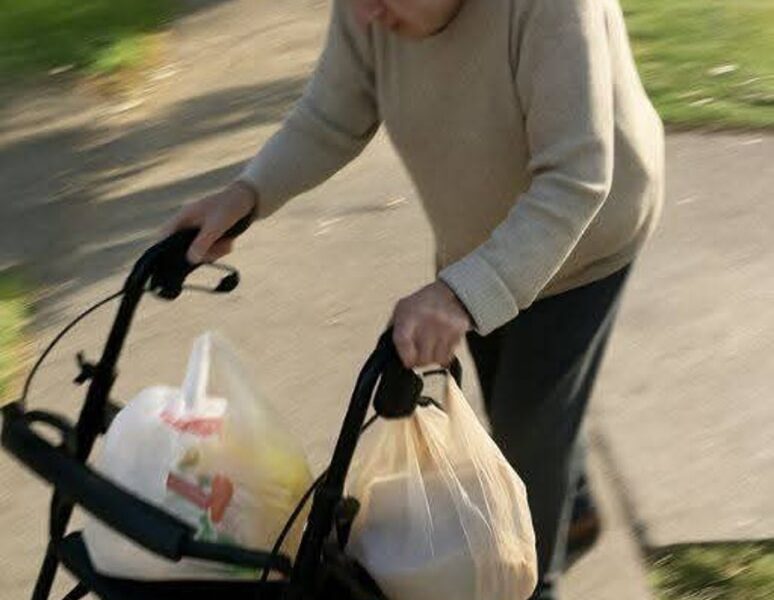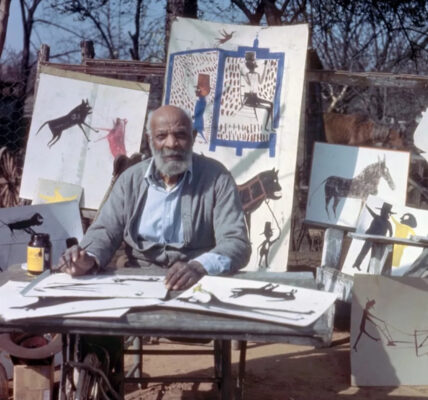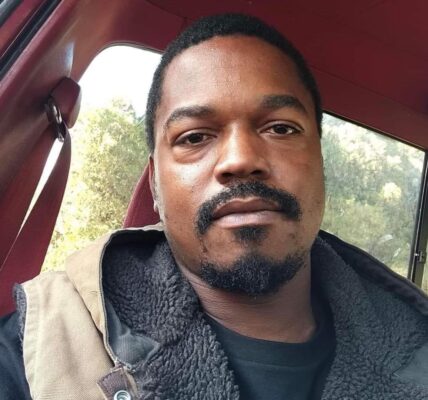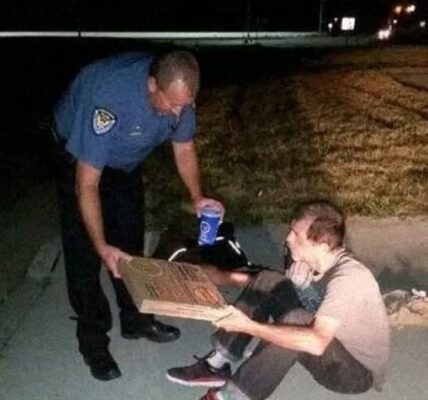It was close to 5 p.m. when I noticed her—a slow, steady figure inching her way down the sidewalk. The sun was beginning to dip behind the rooftops, casting long shadows on the pavement, but she kept moving. Her rollator squeaked with every step, the metal frame rattling slightly as she pushed it forward with quiet determination.

Two plastic grocery bags hung from the handles. One bag held a loaf of bread, a few cans of vegetables, and what looked like a small container of applesauce. The other bag, wrapped tightly in an old dish towel, gave off faint wisps of steam. Something warm was inside—food, likely homemade, still fresh enough to fog the plastic.
She didn’t see me watching from my porch across the street.
She was focused—her eyes locked on the uneven concrete ahead, lips pressed together in concentration. She didn’t walk fast, but every step had purpose. As if each inch brought her closer not just to a doorstep, but to something far more important. A reason. A calling.
I knew who she was. Everyone on our block did.
Miss Inez.
She lived three houses down in a modest, tidy home with flowerpots lining the windowsill. The kind of neighbor who always waved, always asked about your family, and remembered birthdays even when you didn’t. She was nearing 80, maybe older. Her back curved slightly, and she moved with the halting grace of someone used to pain—but not ruled by it.
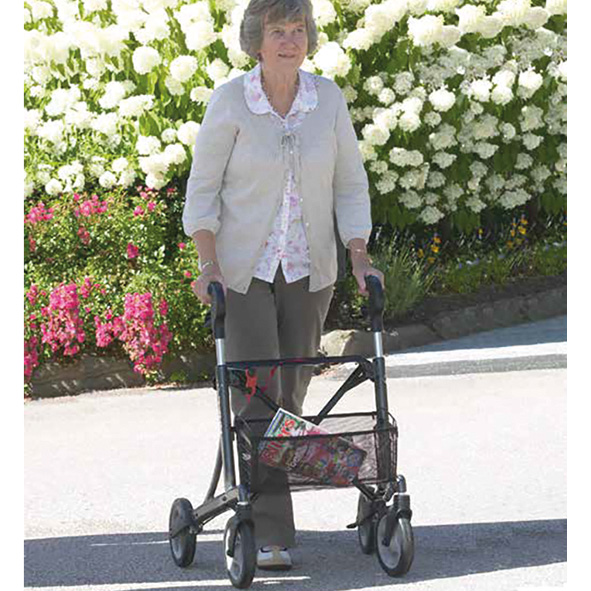
Today, though, she looked tired. Her breath was heavy, shoulders rising and falling more than usual. But she didn’t stop.
After watching her for another minute, I crossed the street and gently asked if she needed help.
She paused, eyes warm but firm. “I’m alright,” she said with a small smile. “Just bringing something hot to the Mitchell boy. His mama’s sick, and he’s been home alone three nights now.”
Her voice had the soft lilt of someone who didn’t talk to hear herself, but only when the words mattered. She adjusted the towel-wrapped container in the bag and kept moving.
“I know what it’s like,” she added after a beat. “To feel forgotten.”
I walked beside her quietly for a few moments, unsure what to say. There was something holy in her effort—this quiet offering, not for recognition or reward, but simply because someone needed to feel cared for.
When we reached the Mitchells’ front steps, she pulled out the warm container and handed it to me to place on the porch. On top of the container, held in place with clear tape, was a folded letter. Her handwriting—wobbly and elegant, like a song with a few missing notes—spelled out just two words:
“You matter.”
I stood there for a long time after she left, her slow squeaking rollator fading down the street. That small note sat on the porch like a whisper carried by wind.
Maybe it was just soup. Maybe it was just six blocks.
But to one boy, on one lonely evening, it was everything.
And to the rest of us, it was a reminder:
Love doesn’t have to shout. Sometimes, it just walks—six blocks, one step at a time.
